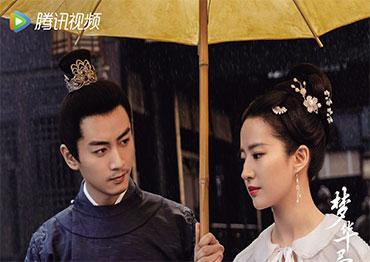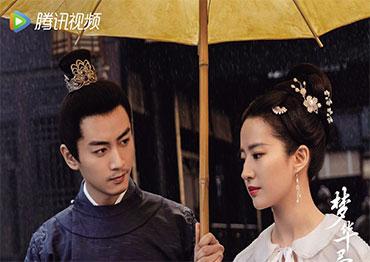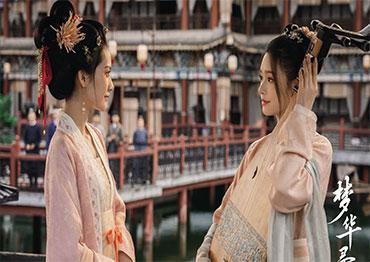A Dream of Splendor could have played it safe by simply focusing on the costume drama formula – stunning scenery, beautiful actors and inspiring stories.
It tells the story of three women from the bottom rungs of society who help each other out and go into business together. Overcoming hardships, they eventually succeed in business and find their soulmates.
The three main characters have distinct personalities. Smart, resourceful and independent, Zhao Pan’er is 9 when she is forced to enter the yueji, an official register of prostitutes and courtesans, after her father is convicted and killed by the emperor. She eventually manages to get out of the yueji class and opens a small tea house.
Song Yinzhang is the youngest and most naïve. A yueji courtesan with true musical talent, she is also eager to escape that life and start again. The third, Sun Sanniang, is a straightforward and open-minded divorced woman who was a butcher before she began making desserts at the tea house.
As with most costume dramas, main character Zhao is flawless: beautiful, elegant, smart and savvy in business and her relationships. She is also elevated above her friends Sun and Song, who depend on their skills and labor to earn a living.
The male lead, Gu Qianfan, is another costume drama trope: the White Knight. As head of the imperial intelligence agency, he is always ready to spring to the rescue, fall in love with a woman beneath his class, and have his influential family insulate him from any consequences.
The three women, with help from a suave male lead, of course, bravely band together to fight social discrimination against women of their class, eventually turning their small tea house into the capital’s most successful restaurant while also growing as individuals.
Buzz around the show abounded thanks to its A-list cast, which includes elfin-faced Liu Yifei of Disney’s live-action Mulan fame, and Chen Xiao, a costume drama staple for his Prince Charming looks. It was lauded as “the hope for Chinese costume dramas” not only for its stunning visuals, costumes and cinematography but absence of the hackneyed techniques typically used, such as overuse of filters, body doubles and stock footage. It even stirred up popularity for the tea culture, desserts, clothing and customs of the Song Dynasty.
“The series, though ordinary in itself, stands out by detaching from the warped aesthetic that’s been rife in costume dramas in recent years,” noted Hong Shui, media critic and TV director.

 Old Version
Old Version

